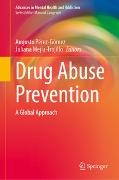Read more
The scourge of drug abuse remains a pressing concern, particularly in the Western world, where its impacts continue to escalate. In response to this growing crisis, nations worldwide are fervently developing prevention strategies, adapting policies, and spearheading research initiatives to substantiate their interventions.
This book embarks on a comprehensive exploration of the global drug abuse landscape, spanning three continents and multiple countries. Delving into the nuanced approaches of various nations, including Argentina, Australia, Colombia, Mexico, Turkey, the United States, and the European Union, it sheds light on diverse cultural, socio-economic, and political contexts that shape responses to substance abuse.
Beyond country-specific analyses, the book features two dedicated chapters of profound significance. The first delves into the implementation of pioneering drug prevention programs in Brazil and Argentina, offering invaluable insights into the challenges and successes encountered in real-world application. The second chapter underscores the criticality of evaluating prevention initiatives, advocating for evidence-based practices to inform future interventions effectively.
By synthesizing empirical evidence, policy analyses, and on-the-ground experiences, this book serves as a seminal resource for policymakers, researchers, practitioners, and advocates vested in combatting the multifaceted issue of drug abuse. It offers a panoramic view of global efforts, illuminating pathways towards more effective prevention strategies and fostering interdisciplinary dialogue to address this complex and urgent societal challenge.
List of contents
Introduction: Drug abuse prevention in the world (Augusto Pérez-Gómez & Juliana Mejía-Trujillo)._ Drug abuse prevention strategies and policies in Argentina (Roberto Canay & Veronica Bracesco)._ Prevention science in Australia (John Toumbourou et al.)_ Evolution of drug abuse prevention in Colombia (Augusto Pérez-Gómez & Juliana Mejía-Trujillo)._ Drug abuse prevention in Europe (Elissardo Becoña & Amador Calafat)._ Evidence-based prevention: effective approaches for drugs demand reduction in Mexico (Jose Luis Benítez & Carmen Fernández)._ Substance abuse and addiction in Turkey: prevention, policies and future recommendations (Murat Yildirin, Fatma Celik & Muhammed Berat)._ Drug abuse prevention in the USA (William Crano et al.)._ Drug Abuse and Drug Policy in the Islamic Republic of Iran (TBA)._ Pilot implementation of Life Skillss Training program in Argentina and Brasil (Maria Elena Goroso, Thais Pereira & Telmo Ronzani)._ A systematic vision of prevention programs evaluation in the 21st Century (Orlando Scoppetta)._ Conclusions and recommendations (Augusto Pérez-Gómez & Juliana Mejía-Trujillo).
Summary
The scourge of drug abuse remains a pressing concern, particularly in the Western world, where its impacts continue to escalate. In response to this growing crisis, nations worldwide are fervently developing prevention strategies, adapting policies, and spearheading research initiatives to substantiate their interventions.
This book embarks on a comprehensive exploration of the global drug abuse landscape, spanning three continents and multiple countries. Delving into the nuanced approaches of various nations, including Argentina, Australia, Colombia, Mexico, Turkey, the United States, and the European Union, it sheds light on diverse cultural, socio-economic, and political contexts that shape responses to substance abuse.
Beyond country-specific analyses, the book features two dedicated chapters of profound significance. The first delves into the implementation of pioneering drug prevention programs in Brazil and Argentina, offering invaluable insights into the challenges and successes encountered in real-world application. The second chapter underscores the criticality of evaluating prevention initiatives, advocating for evidence-based practices to inform future interventions effectively.
By synthesizing empirical evidence, policy analyses, and on-the-ground experiences, this book serves as a seminal resource for policymakers, researchers, practitioners, and advocates vested in combatting the multifaceted issue of drug abuse. It offers a panoramic view of global efforts, illuminating pathways towards more effective prevention strategies and fostering interdisciplinary dialogue to address this complex and urgent societal challenge.

